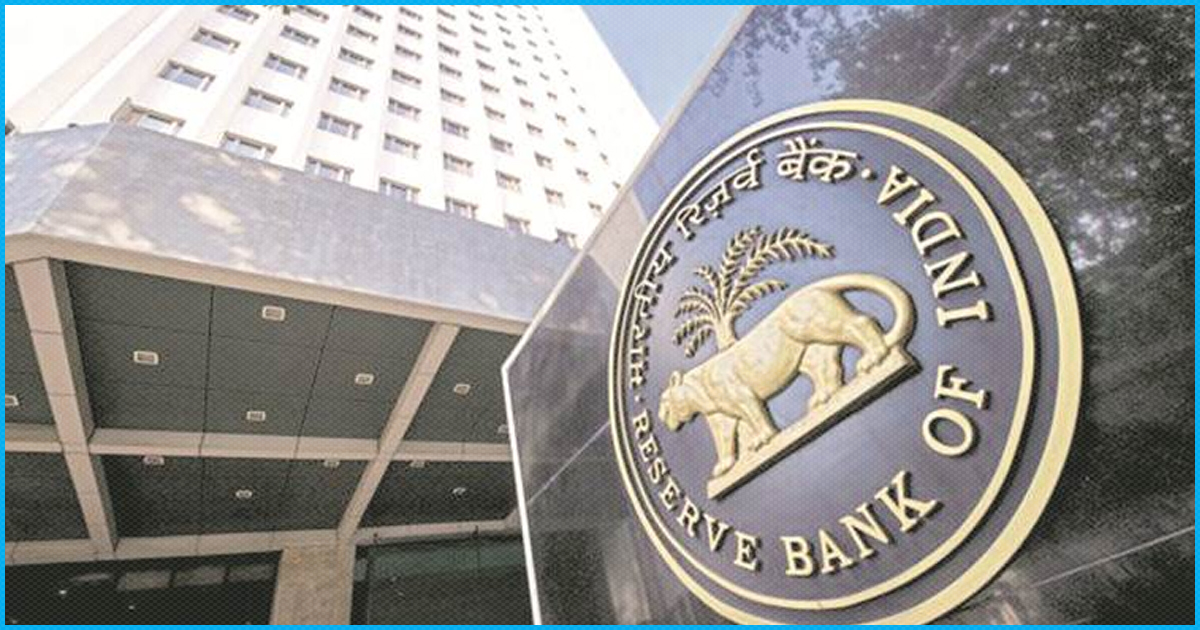The Finance Ministry Of India has reportedly proposed the Reserve Bank Of India (RBI) to transfer a surplus of Rs 3.6 lakh crore to the government. This amount is more than a third of the total reserves that the RBI is in possession of. According to The Indian Express, the ministry is of the opinion that the surplus can be managed by the RBI and the government jointly.
Transfer surplus to the government
However, The Indian Express, while citing sources said that the RBI has rejected the proposal stating that such a move could have an adverse effect on the macroeconomic stability and with low capital, RBI could end up losing its credibility.
Reportedly, the government is of the view that that RBI has over-estimated its capital reserves requirements which resulted in the excess capital of Rs 3.6 lakh crore. Hence, sources told the daily, the government has proposed the move to determine the use of the funds in consultation with the RBI.
The existing economic capital framework which governs the central bank’s capital requirements, as well as the terms for the transfer of its reserves to the government, is a very “conservative” assessment of risk by the RBI, argued the government. The framework was reportedly adopted in July 2017 “unilaterally” by the banking regulator and the government nominees on the board were absent from the meeting, said the Finance Ministry. It also felt that the central bank has been sometimes “arbitrary” when it came to the transfer of the transfer of the interim surplus.
Sources have also claimed that the ministry has proposed that from 2017-18, the RBI, after taking into account its capital requirement should transfer the entire surplus to the government – a point of contention between the two bodies. Additionally, at about 28%, the government feels that the RBI holds higher total capital as a percentage of its total assets when compared to other global central banks.
The ongoing tussle between the RBI and the government
Last month, RBI Deputy Governor Viral Acharya had said that undermining the central bank’s independence would be “potentially catastrophic.” While he talked about the idea of independence of the autonomous body from the clutches of the government, it was nothing new. In his speech during the AD Shroff memorial lecture at Mumbai, Archarya spoke against the government’s pressure to relax asset qualification norms reported The Times Of India. Previous governors too had occasionally pointed out the government’s overreach, when it came to the functionality of RBI. Both RBI and the government have been entangled in a power struggle of sorts with many media reports suggesting that RBI Governor Urjit Patel may soon resign from his post.
On November 6, former RBI governor Raghuram Rajan, in an interview with CNBC TV18, while defending the call for RBI’s greater autonomy said that the nation is ultimately going to benefit from a robust and independent RBI. He said that the RBI board needs to play like Indian cricketer Rahul Dravid and not be as loud like Navjot Sidhu.
This was followed by three letters to the RBI from the Finance Ministry which threatened to invoke Section 7 of the RBI Act, reported The Times Of India. The section deals with power that the government directs to the central bank regarding policies.
Reportedly, it was only in the last few weeks that the government has threatened to invoke its most lethal weapon- Section 7 of the RBI Act. According to the Act, the government may from time to time, the government may give directions to the RBI, after consultation with the governor on matters of public interest. While the Finance Ministry in its press statement did not explicitly state the section, but the usage of words like “public interest” did shed light on the ongoing tussle between the two entities.
However, the RBI is not a department of the Finance Ministry and if the government does invoke section 7, maybe it should also state beforehand that any consequences of its directive will be the responsibility of the government and not the RBI. Also, the surplus with RBI is a fiscally prudent measure, and if the government tries to tap into it, then in times of crisis, both the government and the RBI might face a crunch, the pain of which will ultimately be borne by us, the citizens. So, one may ask, is this really in the ‘public interest’?
Also Read: Govt Plays T20 While RBI Plays Test Match: RBI Deputy Governor’s Speech Raises Questions On Autonomy
CIC Slaps Show-Cause Notice On RBI Governor For Non-Disclosure Of Willful Defaulters’ List










